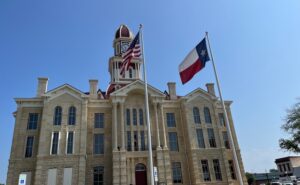
In the complex world of business and leadership, the role of an executive or principal in an Employee Retirement Vehicle (ERV) is crucial. ERV principals are entrusted with the responsibility of managing retirement funds, ensuring financial security for countless individuals. However, a paradox exists within this seemingly virtuous position – ERV principals are not immune to the same sins that afflict others in positions of power.
Table of Contents
ToggleThe Sin of Greed:
One of the cardinal sins that ERV principals may find themselves succumbing to is greed. The allure of financial gain, coupled with the pressure to deliver impressive returns on investments, can lead these individuals down a slippery slope. While the primary goal is to secure the financial future of retirees, the temptation to prioritize personal gain can cloud ethical judgment.
Greed can manifest in various ways, from pursuing high-risk investment strategies to accepting kickbacks from financial institutions. In some instances, ERV principals may even engage in unethical practices such as insider trading, jeopardizing the integrity of the entire retirement fund. This sin not only compromises the financial stability of retirees but erodes the trust placed in ERV principals to safeguard their interests.
The Sin of Negligence:
Another sin that ERV principals may unwittingly commit is negligence. The vast responsibilities of managing retirement funds demand meticulous attention to detail and a proactive approach to risk management. However, negligence can set in when principals become complacent or fail to adapt to changing market dynamics.
Negligence may manifest in poor investment decisions, inadequate due diligence, or a lack of responsiveness to emerging economic trends. In an era where financial markets are dynamic and unpredictable, failure to stay informed and vigilant can have severe consequences for retirees who depend on the ERV for their financial well-being.
The Sin of Hubris:
Hubris, or excessive pride, is a sin that can afflict even the most seasoned ERV principals. With their extensive knowledge and experience, these leaders may become overconfident in their abilities, leading to a disregard for diverse perspectives and alternative strategies. This sin can blind ERV principals to potential risks and limit their ability to adapt to changing circumstances.
Hubris may also result in a reluctance to seek external advice or collaborate with experts in fields such as economics, finance, and technology. The failure to acknowledge limitations and consider alternative viewpoints can undermine the effectiveness of ERV principals in navigating the complexities of the financial landscape.
The Sin of Short-Termism:
In the pursuit of immediate success and gratification, ERV principals may fall prey to the sin of short-termism. Focusing solely on short-term gains can lead to a neglect of long-term sustainability and the overall health of the retirement fund. This sin often involves prioritizing strategies that yield quick returns but may carry significant risks in the long run.
Short-termism can result in a lack of strategic planning, compromising the resilience of the ERV against economic downturns or unforeseen challenges. By succumbing to this sin, ERV principals may undermine the very essence of retirement planning, which is to ensure a secure and stable financial future for retirees over the long term.
The Path to Redemption:
While ERV principals may find themselves susceptible to these sins, there is a path to redemption. Implementing robust ethical guidelines, fostering a culture of transparency, and prioritizing the long-term interests of retirees can serve as antidotes to the sins that may plague ERV leadership.
One key element of redemption is continuous education and self-reflection. ERV principals must stay informed about evolving financial landscapes, ethical considerations, and best practices in fund management. This commitment to ongoing learning can help mitigate the risks associated with greed, negligence, hubris, and short-termism.
Moreover, fostering a culture of accountability within ERV organizations is paramount. Regular audits, independent evaluations, and transparent reporting can act as safeguards against unethical behavior. By holding ERV principals accountable for their actions, organizations can ensure that the interests of retirees remain at the forefront of decision-making processes.
Conclusion:
The paradox of ERV principals committing the same sins as others in positions of power underscores the importance of vigilance, ethical governance, and a commitment to long-term sustainability. While the temptation to prioritize personal gain or succumb to hubris may be ever-present, the impact of such sins can be devastating for the retirees who depend on the ERV for their financial security.
By acknowledging these potential pitfalls and actively working to prevent and rectify them, ERV principals can fulfill their fiduciary duty and contribute to the well-being of those relying on them for a secure retirement. The redemption of ERV principals lies in their ability to rise above the pitfalls of human nature, embrace ethical leadership, and safeguard the financial futures of the individuals they serve.
-
What is an ERV Principal?
An ERV Principal refers to an individual responsible for managing an Employee Retirement Vehicle (ERV). This role involves overseeing and making decisions related to the investment and administration of retirement funds for employees.
-
What are the “sins” that ERV Principals may commit?
ERV Principals may inadvertently commit sins such as greed, negligence, hubris, and short-termism. These can manifest in actions like prioritizing personal gain over the interests of retirees, neglecting due diligence, exhibiting excessive pride, and focusing solely on short-term financial gains.
-
How does greed impact ERV Principals?
Greed can influence ERV Principals to make decisions driven by personal financial gain rather than the long-term interests of retirees. This might lead to unethical practices, high-risk investments, or accepting kickbacks, compromising the integrity of the retirement fund.
-
What is negligence in the context of ERV Principals?
Negligence for ERV Principals involves a failure to exercise due diligence, adapt to changing market conditions, or stay informed about relevant economic trends. It can result in poor investment decisions, inadequate risk management, and overall compromises to the financial stability of the retirement fund.
-
How does hubris affect ERV Principals?
Hubris refers to excessive pride or overconfidence. ERV Principals affected by hubris may dismiss alternative viewpoints, ignore warnings, and resist seeking external advice. This can lead to a lack of adaptability and an increased vulnerability to unforeseen challenges.
-
What is short-termism, and why is it a concern for ERV Principals?
Short-termism is a focus on immediate gains at the expense of long-term sustainability. ERV Principals practicing short-termism may prioritize strategies that yield quick returns but neglect the overall health of the retirement fund, compromising its resilience to economic downturns or challenges.
-
Can ERV Principals redeem themselves if they’ve committed these sins?
Yes, redemption is possible. ERV Principals can take steps such as continuous education, self-reflection, and fostering a culture of transparency and accountability. Implementing ethical guidelines, regular audits, and independent evaluations can help prevent and rectify the impact of these sins.
-
How can ERV organizations mitigate the risk of unethical behavior?
Mitigating the risk of unethical behavior involves implementing measures such as ethical guidelines, transparent reporting, regular audits, and fostering a culture of accountability. Holding ERV Principals accountable for their actions helps ensure that the organization remains committed to the interests of retirees.
-
Why is continuous education important for ERV Principals?
Continuous education is crucial for ERV Principals to stay informed about evolving financial landscapes, ethical considerations, and best practices in fund management. It helps them adapt to changes, make informed decisions, and fulfill their fiduciary duty to retirees.
-
What is the ultimate goal of ERV Principals in managing retirement funds?
The ultimate goal of ERV Principals is to ensure the secure and stable financial future of retirees. This involves making sound investment decisions, prioritizing long-term sustainability, and acting in the best interests of those relying on the ERV for their retirement security.






